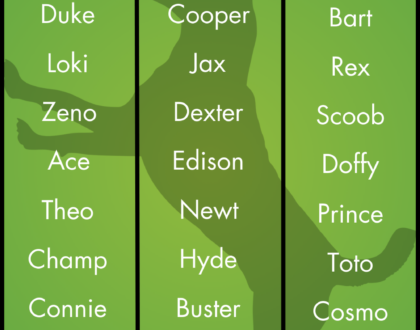What to Feed a Dog with Hip Dysplasia

by Ian Germann
A common condition in many dogs, Hip Dysplasia occurs when the ball and socket joint of the hip doesn’t develop properly, leading to improper fit and movement. This can lead to pain, inflammation and reduced mobility. While proper veterinary care and, in some cases, surgical intervention are essential, providing the right nutrition can significantly contribute to your dog’s comfort and overall health while living with hip dysplasia.
In this blog, we’ll explore a plethora of dietary considerations and recommendations for feeding a dog with hip dysplasia.
Glucosamine and Chondroitin
Glucosamine is a natural compound found in the body, particularly in the fluid around joints. It’s a building block of cartilage, the flexible tissue that cushions bones at the joints. Chondroitin, is another component of cartilage, responsible for giving it its elasticity and shock-absorbing properties. Both of these compounds are essential for maintaining healthy joint function.
By supplementing these compounds into your pet’s diet, these compounds can aid in repairing damaged cartilage and maintaining its structural integrity. In dogs with hip dysplasia, this can also contribute to smoother joint movement and reduced friction.
Get Glucosamine and Chondroitin from Evanger’s Grain Free Chicken, Sweet Potato & Pumpkin Kibble for Dogs. Nutritionally balanced for dogs of all ages, this recipe comes with fresh chicken meat as the first ingredient with no corn, wheat or soy; perfect for dogs with fussy tummies!
High-Quality Protein
Dogs with hip dysplasia often experience reduced mobility, which can lead to muscle atrophy over time. Adequate protein intake is essential for maintaining and repairing muscles, helping to support your dog’s weakened hip joints and keep them moving around.
Protein-rich diets can also aid in weight management for dogs with hip dysplasia. Maintaining a healthy weight is very important, as excess weight can exacerbate joint discomfort and strain on the affected hips.
For meals with high-quality protein, try Evanger’s Super Premium line for slow cooked meals with locally sourced meat as their first ingredient. Flavors include, Chicken, Venison, Beef, and more!
Omega-3 Fatty Acids
Commonly found in certain fish, flaxseed, chia seeds and algae, these fatty acids are renowned for their anti-inflammatory properties. In dogs with hip dysplasia, inflammation in the affected joints can lead to discomfort and pain. Omega-3’s can help reduce this inflammation, alleviating the associated symptoms and enhancing your dog’s quality of life.
A key feature of omega-3 fatty acids is also their role in promoting joint lubrication. They can increase the production of synovial fluid, which provides the lubrication necessary for smooth joint movement.
Try Evanger’s Whole Uncut Sardines for a meal with natural Omega-3 fatty acids, served in delectable gravy with whole pieces of sardines from head to tail, hand packed into our 100% BPA-free cans!
Fruits and Vegetables
For dogs with hypothyroidism, the nutritional boost from fruits and vegetables can go a long way in helping deal with hypothyroidism. For example, dietary fiber is present in many fruits and vegetables, aiding in digestion and helping to regulate bowel movements. Hypothyroidism can sometimes lead to constipation, and a diet rich in fiber can help promote healthy digestion and alleviate this concern.
As mentioned before, maintaining a healthy weight is imperative for dogs with hypothyroidism, as this condition can slow down metabolism. Many fruits and vegetables are low in calories and can be used as healthy treats or additions to meals to help manage weight.
For a great meal with fruits and vegetables, you can’t go wrong with Evanger’s Vegetarian Grain Free Complements, which comes with sweet potatoes, tomatoes, carrots, blueberries, cranberries, peas and more!
Caring for a dog with hip dysplasia requires a multi-faceted approach, and proper nutrition is a fundamental component of their care. By choosing a balanced diet rich in chondroitin & glucosamine, high-quality protein, omega-3 fatty acids and fruits & vegetables, you can help manage your dog’s discomfort and improve their overall quality of life.
Always work closely with your veterinarian to create a diet plan that best suits your furry friend’s individual needs, and watch them thrive despite the challenges posed by hip dysplasia.
Recommended Posts

Nutritional Tips for Boxers
August 15, 2023

Amazing Names for Male Dogs
July 18, 2023



